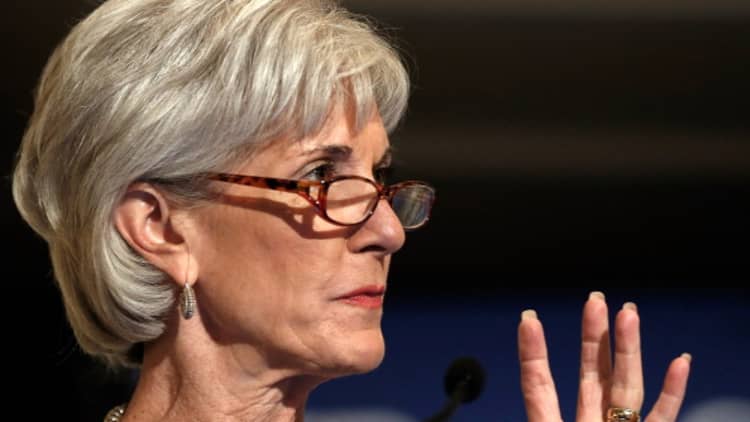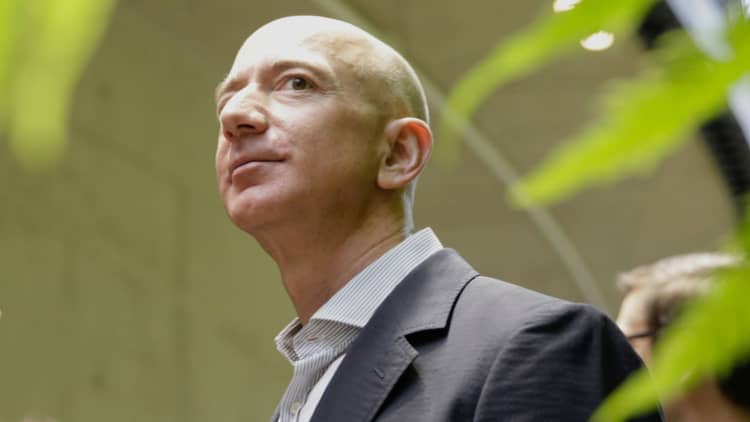Drug prices fell more than 5 percent in the first quarter, a new analysis found. But what caused the decrease can actually increase costs for patients in the long run.
If it sounds wonky, that's because it is.
List price, or the advertised amount, of drugs increased 6.2 percent, according to SSR Health. Meanwhile, real net price declined 5.6 percent, compared with 1.7 percent in the same period last year, the firm found.
"List price inflation is still moving pretty rapidly and it's a bit of a political lightning rod. But the true economic rate is much lower," said SSR Health founder Richard Evans. "Net prices were falling at about a 1.7 percent rate this time last year, but are now falling at the rate of 5.6 percent; that's just an enormous difference."
SSR Health credits the real net price decrease to a type of drug benefit known as copay accumulators or accumulator adjustments, which have become particularly common this year after emerging over the past few years. These adjustments shift more of the drug costs from payers, or health insurance companies and pharmacy-benefit managers, to drug manufacturers and patients.
Pharmaceutical companies have traditionally helped patients cover the costs of expensive specialty drugs through copay cards. These payments would count toward patients' deductibles, or the amount people pay until their benefits kick in, and out-of-pocket maximum, the most they will pay on their own.

When these payments from manufacturers would max out for the year, patients' insurance would typically kick in since they've met their deductible or out-of-pocket maximums. With accumulator adjustments, patients receive the same amount of money from drugmakers as before, but the payments don't count toward patients' deductibles and out-of-pocket maximums.
So when they've hit the amount of money pharmaceutical companies chip in for the year, they're stuck paying the full cost for the drugs until they've reached their deductible or out-of-pocket maximums.
Those costs can be eye-popping because they're based on list prices, not the rates payers negotiate. Experts have said the practice could cause drug costs to fall because drug manufacturers will kick in more money to help buffer the sticker shock patients experience when their copay cards run out of money and they must pay out of pocket.
"The accumulators are targeting people who have rare diseases and take specialty drugs," said Adam Fein, CEO of Pembroke Consulting's Drug Channels Institute. "They're as much of a cash grab from patients as I can possibly imagine. They're being misrepresented by payers as choosing a brand versus generic, but these drugs don't have a generic."
Three categories of drugs have driven price increases, on a weighted basis, over the last six years: disease-modifying antirheumatic drugs, multiple sclerosis drugs and HIV drugs. This quarter, they all saw significant real net prices decline. DMARDs' prices decreased 5.8 percent, MS drugs fell 5 percent and HIV drugs fell 11.8 percent.

These treatments tend to be expensive, so manufacturers typically help patients cover the costs. SSR Health's Evans expects drugmakers to make more payments in the near-term so patients continue taking their drugs. In the long-term he expects them to move away from copay cards to options like coupons and debits cards that go directly to patients.
PhRMA, the drug industry's lobbying group, started running ads this year attacking these programs. They come as pharmacy benefit managers, or firms that negotiate discounts from drugmakers, have found themselves in the middle of the debate over rising drug prices.
President Donald Trump chastised middlemen when he announced his administration's plan to lower drug prices last month, saying they "became very, very rich" and they "won't be so rich anymore."


